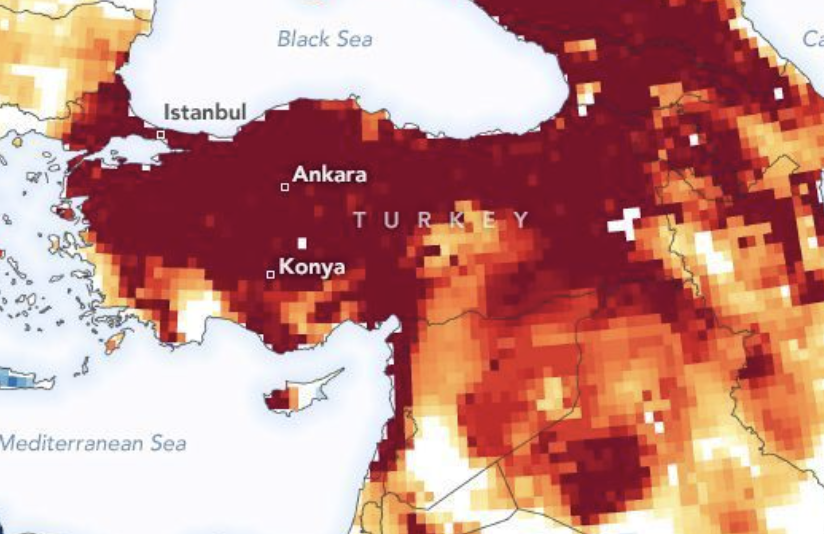Türkiye experienced its hottest year in history in 2024, with an average temperature of 15.6°C, surpassing the previous record of 15.5°C set in 2010. The Turkish State Meteorological Service confirmed this on Jan. 13, attributing the rise to the intensifying impacts of climate change.
Breaking a 53-Year Record
The 2024 average temperature was 1.7°C higher than the long-term average recorded between 1991 and 2020, making it the warmest year since the country began keeping temperature records in 1971. The analysis was based on data from 220 meteorological stations.
Records were broken in January, April, June, and July, with only May and November showing below-average temperatures. The trend mirrors global patterns, as several nations, including China, Brazil, Japan, India, and the U.S., also reported their hottest years on record.
Drought and Rainfall Trends
Türkiye’s rainfall in 2024 was 6.3% below normal, with the Aegean coast hit hardest, experiencing a 22.4% drop in precipitation. Major cities like Ankara, Istanbul, and İzmir also reported below-average rainfall.
Conversely, the Black Sea region saw near-normal rainfall levels, while Eastern Anatolia recorded a 7.5% increase. Notably, the Black Sea province of Rize received the highest rainfall, with 1,869.9 kilograms per square meter, exceeding its historical average by 17%.
Drought conditions have exacerbated issues such as sinkhole formation in central provinces like Konya, Türkiye’s agricultural heartland, where groundwater over-extraction has compounded the problem.
A Global Call for Action
While Türkiye’s meteorological service did not explicitly link these trends to climate change, the World Meteorological Organization (WMO) recently declared 2024 the world’s hottest year on record, urging nations to take immediate action. Similarly, Europe’s Copernicus climate monitor noted that global temperatures had exceeded the 1.5°C warming limit over the past two years.
This alarming data underscores the urgent need for comprehensive policies to combat the climate crisis, which continues to manifest through extreme temperatures, droughts, and disrupted rainfall patterns worldwide.
